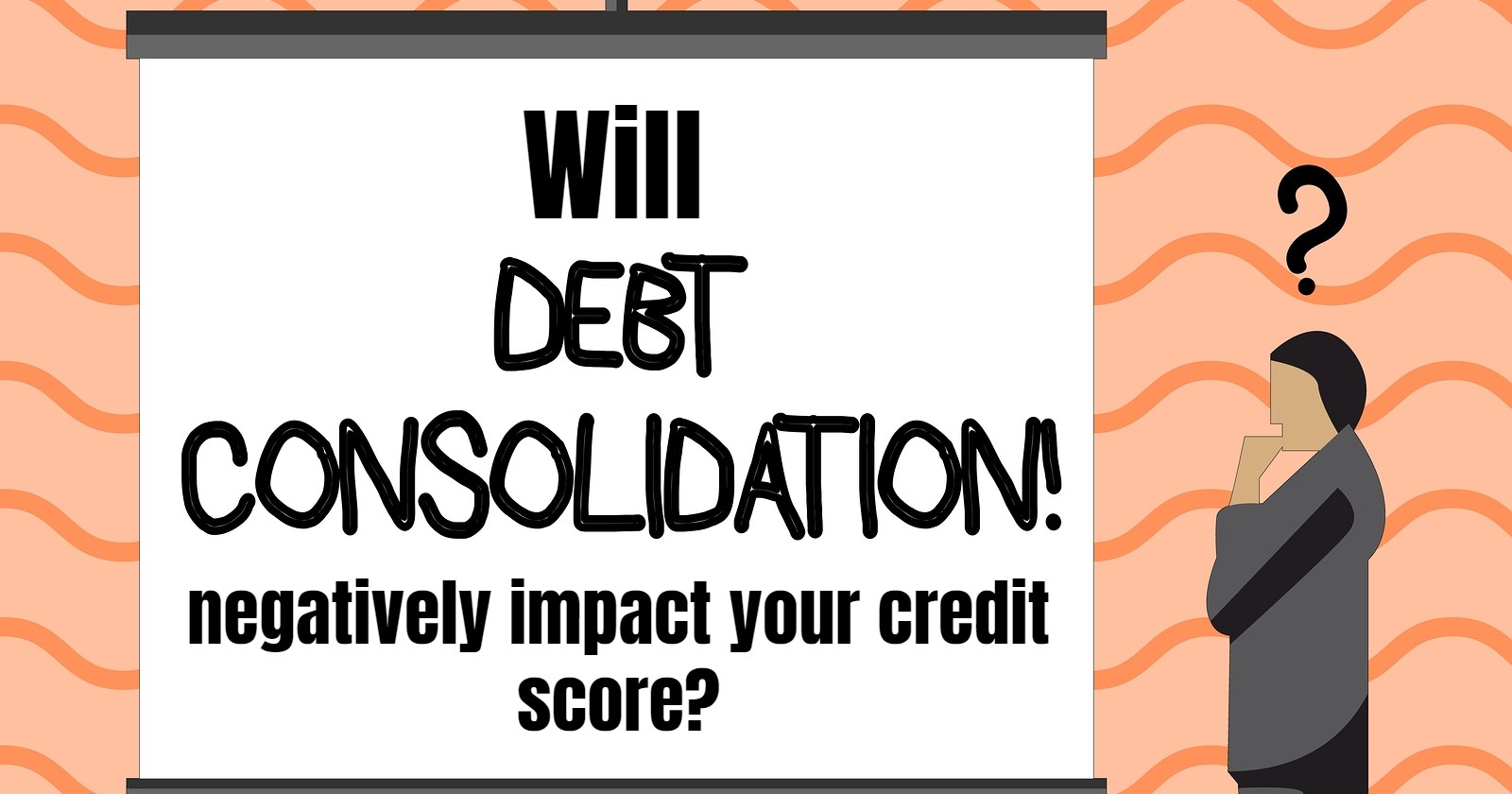Home>Finance>How Much Does A Judgement Affect Your Credit Score


Finance
How Much Does A Judgement Affect Your Credit Score
Published: October 22, 2023
Learn how much a judgement can affect your credit score and find out what you need to know about the impact of finance-related issues on your financial health.
(Many of the links in this article redirect to a specific reviewed product. Your purchase of these products through affiliate links helps to generate commission for LiveWell, at no extra cost. Learn more)
Table of Contents
Introduction
Having a good credit score is essential for financial stability and opportunities. It impacts your ability to obtain loans, credit cards, and even affects your insurance rates and job prospects. However, life is unpredictable, and sometimes we find ourselves facing unforeseen financial challenges.
One common financial setback is a judgment. When you fail to pay a debt or honor a financial obligation, the creditor may take legal action against you, resulting in a judgment. A judgment is a court order that allows creditors to collect the outstanding debt by various means, such as wage garnishment or property liens.
But what exactly does a judgment mean for your credit score? In this article, we will delve into the world of credit scores and provide insights into how judgments can impact your financial standing. We will explore the factors affecting the severity of a judgment and discuss the steps you can take to repair your credit after a judgment is issued.
Understanding the consequences of judgments on credit scores is crucial for anyone who wants to maintain a healthy financial profile. So, let’s dive in and unravel the mysteries surrounding judgments and credit scores.
What is a Credit Score?
A credit score is a numerical representation of an individual’s creditworthiness. It is a tool used by lenders to assess the risk of extending credit to a borrower. Credit scores are calculated based on a variety of factors, including payment history, credit utilization, length of credit history, types of credit, and recent credit inquiries.
The most commonly used credit scoring model is the FICO score, developed by the Fair Isaac Corporation. FICO scores range from 300 to 850, with higher scores indicating a lower risk of defaulting on credit obligations.
Financial institutions and creditors rely heavily on credit scores to determine the terms and conditions of loans, credit cards, and other credit products. Borrowers with higher credit scores are more likely to qualify for lower interest rates, higher credit limits, and better loan terms, while individuals with lower credit scores may find it difficult to secure credit or may be subject to higher interest rates and less favorable terms.
It is important to note that credit scores are not fixed; they can change over time based on your financial behavior. Positive actions, such as making timely payments and keeping credit card balances low, can improve your credit score, while negative actions, such as missing payments or maxing out credit cards, can cause your score to drop.
Now that we have a basic understanding of credit scores, let’s explore how judgments can impact this crucial financial metric.
Understanding Judgments
A judgment is a court ruling that is issued against an individual or entity when they fail to repay a debt or fulfill a financial obligation. It is the final legal step taken by creditors to recoup the money owed to them. Once a judgment is issued, it gives the creditor the authority to use various methods to collect the outstanding debt.
There are different types of judgments, including monetary judgments, which require the debtor to pay a specific amount of money, and non-monetary judgments, which may involve actions like seizing assets or placing a lien on property.
It is important to understand that judgments are a matter of public record and can be viewed by anyone, including lenders, landlords, and employers. This means that having a judgment on your record can negatively impact your financial and personal life.
When a judgment is issued against you, it not only affects your credit score but also makes it more difficult to borrow money in the future. Lenders may see you as a higher risk borrower and either deny your credit applications or charge you higher interest rates to compensate for the perceived risk.
It is worth noting that judgments have a statute of limitations, which varies by state. This means that after a certain number of years, the judgment becomes unenforceable, although it may still appear on your credit report.
Now that we have a clear understanding of what judgments are and how they can impact your financial life, let’s explore in more detail how judgments can affect your credit score.
How Judgments Impact Your Credit Score
Judgments can have a significant impact on your credit score, resulting in a decrease in your overall creditworthiness. When a judgment is reported to credit bureaus, it becomes a negative item on your credit report and can stay on your report for up to seven years.
One of the main credit scoring models used by lenders, the FICO score, considers the presence of judgments as a derogatory factor. The exact impact can vary depending on your overall credit history and the severity of the judgment. In general, a judgment can cause a noticeable drop in your credit score.
When calculating credit scores, the FICO model takes into account various factors, including payment history, credit utilization, and the presence of public records, such as judgments and bankruptcies. Judgments are typically viewed as strong evidence of a failure to pay debts, indicating a higher credit risk.
In addition to directly impacting your credit score, a judgment can also make it more challenging for you to access credit in the future. Lenders, landlords, and other financial institutions review credit reports during the application process to assess an individual’s creditworthiness. A judgment on your credit report raises red flags and can lead to loan rejections or less favorable loan terms.
It is important to note that while judgments can have a significant negative impact on your credit score, their effect can lessen over time as long as you continue to demonstrate responsible financial behavior. By making consistent, on-time payments and responsibly managing your credit, you can gradually rebuild your credit score, even with a judgment on your record.
Now that we understand how judgments can impact your credit score, let’s explore the factors that can affect the severity of a judgment.
Factors Affecting the Severity of a Judgment
The severity of a judgment can vary depending on several factors. Understanding these factors can give you insights into how to navigate the situation and minimize the negative impact on your credit score and financial standing.
Amount Owed: The amount of the judgment plays a significant role in its severity. Larger judgments can have a more substantial impact on your credit score and may be viewed as a higher level of financial irresponsibility by lenders.
Type of Debt: The type of debt involved in the judgment can also affect its severity. Judgments related to credit card debt or personal loans may be viewed more negatively compared to judgments related to medical bills.
Recency of the Judgment: Recent judgments tend to have a more significant impact on your credit score than older judgments. Lenders may perceive recent judgments as a reflection of your current financial situation and may be more cautious about extending credit to you.
Other Negative Items: If you have other negative items on your credit report, such as late payments, collection accounts, or bankruptcies, the presence of a judgment can compound the negative impact on your credit score.
Payment Status: The payment status of the judgment can also play a role in its severity. If you have satisfied the judgment, it may have a lesser impact on your credit score compared to an unpaid judgment.
Number of Judgments: Multiple judgments can have a cumulative effect on your credit score. Lenders may view multiple judgments as a pattern of financial mismanagement and may be more hesitant to extend credit to you.
It is important to remember that while these factors can influence the severity of a judgment, taking proactive steps to address the situation can help mitigate the negative impact and start rebuilding your credit.
Now that we have explored the factors that can affect the severity of a judgment, let’s move on to discussing the length of time judgments stay on your credit report.
Length of Time Judgments Stay on Your Credit Report
Judgments can have a significant impact on your credit report and can stay on your record for a considerable amount of time. The precise length of time that a judgment remains on your credit report depends on several factors, including the credit reporting agency and the type of judgment.
Under the Fair Credit Reporting Act (FCRA), judgments can be reported on your credit report for up to seven years from the date of the judgment. This means that the negative impact of a judgment can linger on your credit report for several years, potentially affecting your ability to obtain credit or secure favorable loan terms.
If a judgment is paid in full, it may still remain on your credit report for seven years from the date it was filed. However, with a satisfied judgment, lenders may view your creditworthiness more favorably, as it shows a willingness to resolve your debts.
On the other hand, if you have an unpaid judgment, it can have a more detrimental effect on your credit score and make it more difficult to access credit. Lenders may view the unpaid judgment as a significant risk factor, indicating a history of non-payment.
It is worth noting that some credit reporting agencies may remove judgments from your credit report after a certain period, even if the judgment has not been satisfied. However, this may vary, and it’s important to monitor your credit report regularly to ensure accuracy.
While a judgment may impact your credit report for a significant period, its influence on your credit score may diminish over time, especially if you demonstrate responsible financial behavior. By making timely payments, reducing your debt, and managing your credit effectively, you can gradually rebuild your credit score, even with a judgment on your record.
Now that we have explored the length of time judgments stay on your credit report, let’s discuss the steps you can take after receiving a judgment.
Steps to Take After Receiving a Judgment
Receiving a judgment can be a stressful and overwhelming experience, but there are steps you can take to address the situation and minimize the impact on your credit and financial standing. Here are some important steps to consider:
1. Review the judgment: Carefully review the details of the judgment, including the amount owed, the court’s decision, and any additional requirements or actions you need to take.
2. Determine your options: Assess your financial situation and explore your options for resolving the judgment. Depending on your circumstances, you may consider negotiating a settlement, setting up a payment plan, or seeking legal advice.
3. Communicate with the creditor: Open lines of communication with the creditor or their legal representative. Discuss possible payment arrangements or settlements that may be mutually acceptable.
4. Make payments or settle the judgment: If you have the means to do so, make arrangements to pay off the judgment in full. Alternatively, you may negotiate a settlement amount with the creditor, which may involve paying a reduced sum to satisfy the debt.
5. Obtain a satisfaction of judgment: Once the judgment has been paid or settled, request a satisfaction of judgment document from the creditor or the court. This document serves as proof that the judgment has been resolved and can be provided to credit bureaus to update your credit report.
6. Monitor your credit report: Regularly monitor your credit report to ensure that the judgment is accurately reported and updated. Dispute any discrepancies or errors with the credit reporting agencies to ensure the information is corrected.
7. Rebuild your credit: After resolving the judgment, focus on rebuilding your credit. Make timely payments, keep your credit utilization low, and practice responsible financial habits to improve your creditworthiness over time.
It is important to remember that each situation is unique, and seeking legal advice is recommended to ensure you fully understand your rights and options when dealing with a judgment. By taking proactive steps and addressing the judgment promptly, you can mitigate its impact and work towards improving your financial standing.
Now that we have discussed the steps to take after receiving a judgment, let’s explore how you can repair your credit after a judgment has been issued.
Repairing Your Credit After a Judgment
Recovering from a judgment and rebuilding your credit may take some time and effort, but it is possible with diligence and persistence. Here are some steps you can take to repair your credit after a judgment:
1. Pay off outstanding debts: In addition to resolving the judgment, it’s important to address any other outstanding debts. Make a plan to pay off your debts systematically, starting with high-interest debts or those in collections.
2. Establish a budget: Create a budget that allows you to allocate funds towards debt repayment and living expenses. Stick to the budget and avoid accumulating new debt.
3. Build an emergency fund: Set aside some money each month for emergencies. Having an emergency fund can help prevent future financial setbacks that could negatively impact your credit.
4. Use credit responsibly: Apply for a secured credit card or a credit builder loan to start rebuilding your credit. Make small purchases and pay them off in full each month to demonstrate responsible credit behavior.
5. Monitor your credit report: Regularly review your credit report to ensure there are no errors or inaccurate information. Dispute any discrepancies with the credit bureaus and follow up until they are resolved.
6. Seek professional advice: Consider consulting with a credit counselor or financial advisor who can provide guidance and expertise in improving your credit. They can help you develop a customized plan for your specific situation.
7. Increase your credit limits: As you rebuild your credit, consider requesting a credit limit increase on your existing credit cards. This can help improve your credit utilization ratio, which is an important factor in your credit score.
8. Maintain good credit habits: Pay your bills on time, keep your credit utilization low, and avoid taking on too much new debt. Consistently practicing these good credit habits will gradually improve your credit score.
It’s important to be patient and consistent while rebuilding your credit after a judgment. Over time, as you make positive changes and demonstrate responsible credit behavior, the negative impact of the judgment will diminish.
Remember, rebuilding your credit is a journey, and every positive step you take will contribute to your overall financial well-being. Stay committed to improving your credit and don’t be discouraged by setbacks along the way.
Now that we have explored the steps to repair your credit after a judgment, let’s conclude our discussion.
Conclusion
Dealing with a judgment can be a challenging experience, but it’s important to understand the impact it can have on your credit score and overall financial health. A judgment can significantly lower your credit score and make it harder to access credit in the future. However, with careful planning and responsible financial management, it is possible to recover from a judgment and rebuild your credit.
Taking proactive steps, such as resolving the judgment, paying off debts, and practicing good credit habits, can gradually improve your creditworthiness. Monitoring your credit report regularly and disputing any errors can also ensure the accuracy of your credit information. Seeking professional advice from credit counselors or financial advisors can provide valuable insights and guidance during the credit repair process.
Remember, the impact of a judgment on your credit score will diminish over time as long as you continue to make positive financial changes. Focus on developing good financial habits, paying your debts on time, and reducing your debt load. With dedication and patience, you can repair your credit and regain financial stability.
Ultimately, the key to maintaining a healthy credit score is maintaining responsible financial behavior. Stay proactive, stay informed, and take control of your financial well-being. Don’t let a judgment define your financial future; use it as an opportunity to learn, grow, and build a stronger financial foundation.
By understanding how judgments affect your credit score and taking the necessary steps to address them, you can pave the way towards a brighter financial future.














